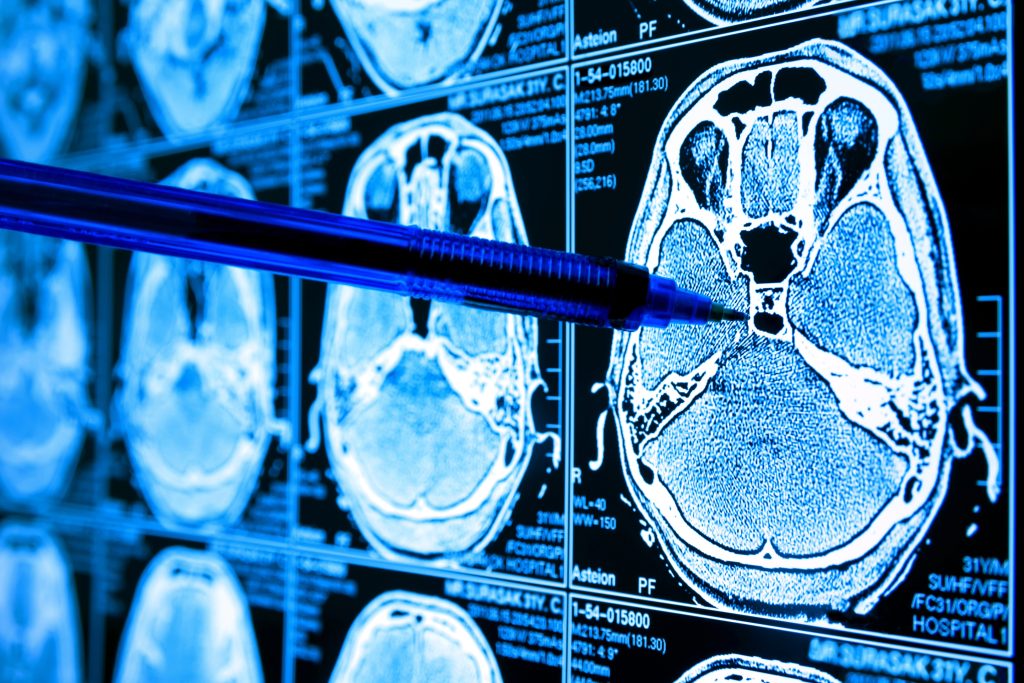
How AI in Healthcare is Enhancing Empathy and Efficiency
In the ever-evolving landscape of the healthcare industry, artificial intelligence (AI) and machine learning are emerging as transformative forces. Picture a world where healthcare professionals have more time to connect with patients, administrative tasks are seamlessly automated, and medical outcomes are consistently improved. This isn’t a distant future; it’s happening now. This article delves into the profound impact of AI in healthcare, highlighting its potential to enhance empathy, streamline administrative tasks, and elevate patient care.
“The essence of healthcare lies in human connection, where empathy and compassion are as crucial as clinical expertise.”
The Future of Healthcare: AI Capabilities Beyond Diagnosis
When most people think of AI in healthcare, they envision machines reading radiology images or assisting in diagnosis. But AI’s potential goes far beyond that. Imagine your doctor having the time to really listen to your concerns, remembering personal details about your life, and providing emotional support during tough times. AI is making this possible by taking over routine tasks, allowing healthcare providers to focus on what truly matters – their patients.
Building on this foundation, AI techniques can further personalize patient interactions. Tools that remind doctors of significant life events or small details can ensure that each patient feels heard and valued. AI also can help patients and their families. For example, conversational AI technologies can suggest the best questions to ask during visits, reducing confusion and empowering patients to seek better understanding of their health, especially when facing a new diagnosis and treatment. As AI continues to evolve, it will play a crucial role in strengthening the bond between patients and physicians, leading to improved communication, patient satisfaction, and health outcomes.
Reducing Administrative Burdens with the Use of AI
Did you know that at least a third of a clinician’s time is spent on documentation? This staggering statistic highlights the administrative burden that healthcare professionals face daily. AI is stepping in as a powerful ally, transforming the way electronic health records (EHRs) are managed and clinical decisions are made.
Imagine an AI system that can quickly analyze complex medical records, providing insights that support clinical decision-making. This not only improves efficiency but also enhances the quality of care. AI can be used to help with various administrative tasks, freeing up more quality time to connect with patients.
Ambient technologies are another exciting development designed to help healthcare professionals. These systems can capture physician-patient encounters and automatically generate medical notes and summaries that integrate with EHRs. This means doctors can focus on their patients instead of typing behind a computer screen. The result? Better patient interactions and increased job satisfaction among healthcare workers.
Enhancing Early Detection and Personalized Medicine
AI is revolutionizing the early detection and prevention of diseases. By analyzing trends and patterns in patient data, AI systems can identify risk factors and early symptoms of diseases, allowing for timely interventions. For instance, AI is able to detect early signs of conditions such as cancer or cardiovascular diseases, often before they are noticeable by human eyes.
In personalized medicine, AI tailors treatments to individual patient needs. By considering genetic information, lifestyle factors, and medical history, AI can help recommend personalized treatment plans that are more effective and have fewer side effects. This approach not only improves health outcomes but also enhances the efficiency of healthcare by reducing trial-and-error in treatment selection.


Empathy through AI: A Counterintuitive Insight
At first glance, AI and empathy might seem like an unlikely pairing. However, AI is proving to be a valuable tool in fostering empathy in patient care. Rising administrative burdens, higher stress-levels, and burnout in healthcare have increased disconnection between providers and patients. AI is not just about improving efficiency; it’s about enhancing the human touch in medicine.
With less administrative work and time spent in EHRs, healthcare providers are able to engage in more meaningful conversations with their patients. This personalization and face-to-face time helps patients feel valued and understood, fostering a deeper connection between them and their providers. By integrating AI into regular practice, healthcare can become more compassionate and patient-centered.
One example of AI in healthcare is the use of generative AI to draft personalized follow-up emails and visit summaries. This ensures the personal touch extends beyond the clinic, emphasizing a high level of care and consideration for the patient’s health. Additionally, AI’s predictive capabilities allow for proactive care, identifying potential issues before they escalate. This proactive approach demonstrates a genuine commitment to a patient’s well-being, reinforcing trust and empathy. In essence, AI supports healthcare providers in delivering personalized, empathetic care, ensuring technology enhances rather than replaces humanistic care.
Addressing Global Healthcare Challenges with AI Solutions
The challenges faced by healthcare systems around the world are vast and varied. In the US, there is a projected shortage of hundreds of thousands of nurses over the next five years. In the UK, long waiting times for primary care are a common issue. AI offers solutions that can alleviate these problems and improve healthcare delivery globally.
By automating routine tasks and simplifying medical records management, AI allows healthcare workers to focus more on meaningful patient care. This makes the profession more attractive and can help address global workforce shortages. Additionally, AI can help enhance the efficiency of healthcare systems, leading to shorter wait times, improved access to care, and better overall patient outcomes.
AI’s ability to quickly analyze vast amounts of data can also help identify trends and patterns, enabling healthcare providers to address public health issues more effectively. This global perspective highlights the universal potential of AI to improve healthcare systems around the world and overall population health.
AI in Action: Variety of Applications in Modern Healthcare
Clinical Trials Matching
Clinical trials are essential for advancing medical science, but finding suitable participants can be challenging. AI can process and structure patient data with complex clinical trial documents, revolutionizing the recruitment process. By matching patients more efficiently with suitable trials, AI accelerates the development of new drugs and reduces healthcare costs.
Patient Communication
Effective communication is crucial for patient satisfaction and trust. Studies have shown that AI-generated after-visit summaries are often rated as more human than those written by doctors. AI tools can create detailed and empathetic summaries of patient visits, complete with actionable steps and personalized recommendations, making patients feel understood and supported.
Real-World Evidence (RWE)
AI has the ability to gather and analyze real-world health data from everyday medical encounters. This capability can significantly shorten the time needed to validate new treatments, potentially saving thousands of lives. AI can analyze real-world data to identify effective treatment protocols, helping to improve patient outcomes and advance healthcare research.
AI-Powered Diagnostics
AI technologies have shown remarkable accuracy in reading medical images and diagnosing complex diseases. AI systems can predict molecular behavior and identify potential compounds faster than traditional methods, making significant strides in drug discovery. Additionally, AI-driven imaging tools can detect early signs of diseases such as diabetic retinopathy and breast cancer, improving early intervention and patient outcomes.


Ethical Considerations and Responsible AI Practices
As AI becomes more integrated into the healthcare field, it is essential to address the ethical implications and ensure responsible AI practices. Patient data privacy and cybersecurity are paramount concerns. Healthcare organizations must implement robust security measures to protect sensitive information from breaches and misuse.
Transparency in AI algorithms is also crucial to build trust and accountability. Patients and healthcare providers need to understand how AI systems make decisions and the factors influencing those decisions. This transparency can help mitigate biases in AI algorithms and ensure that AI-driven recommendations are fair and equitable in medical diagnosis and treatment.
Stepping into the Future: Integrating AI for Better Health Outcomes
For AI technology in healthcare to be integrated effectively, it is crucial to understand its nature. Unlike traditional computers, AI systems do not offer perfect calculations or memory recall. Instead, they function more like an eager and tireless intern, capable of assisting with a wide range of tasks but requiring human oversight and judgment.
Healthcare leaders must approach AI adoption with this mindset, leveraging its strengths while remaining vigilant about its limitations and how it should be used in healthcare. Developers of AI systems must also implement risk management protocols to prevent harm, preserving patient safety and public health. Integrating responsible AI practices will be crucial in helping healthcare organizations advance into a future where technology will make significant contributions to improve health systems.
Effective integration of AI into healthcare involves fostering a culture of continuous learning and collaboration. Regular training sessions, open discussions about the ability of AI and its limitations, and a strong emphasis on ethical practices are essential to creating a seamless integration that benefits patients, providers and organizations.
Future Trends and Developments in AI Healthcare
Looking ahead into artificial intelligence in healthcare, several trends and developments are poised to further transform the industry. AI’s role in telemedicine and remote patient monitoring is expected to grow, providing more accessible and efficient care for patients regardless of their location. AI-driven predictive analytics will enable proactive healthcare, identifying potential health issues before they become critical.
Moreover, advancements in natural language processing, deep learning AI, and AI-driven diagnostics will continue to refine and enhance the accuracy and efficiency of healthcare services. As technology for AI evolves, it will increasingly support healthcare professionals in delivering personalized, patient-centric care.

Embracing AI in Healthcare: A New Mindset
The integration of AI into the healthcare sector is not just about technological advancement. Beyond its capabilities for diagnosis, it is about fundamentally improving the patient experience and the work environment for healthcare professionals. By reducing administrative burdens and enhancing empathy, using AI has the potential to transform healthcare into a more human-centric field. As we move forward in assessing the benefits of AI in healthcare, it is essential for leaders of healthcare organizations to embrace AI thoughtfully, ensuring its role in healthcare complements rather than replaces the invaluable human touch in medicine.
Advancing Medical Intelligence with MedMinded
As the healthcare industry continues to evolve, it’s important to stay informed about the latest advances in AI and its transformative use cases.
Discover how cutting-edge generative AI applications like MedMinded are empowering healthcare professionals to elevate their expertise, advancing their learning in healthcare with the latest medical research.
Curious about the application of AI in medicine and its potential benefits? AI can help clinicians boost productivity and reclaim valuable time while optimizing patient care. Explore MedMinded to see how new AI healthcare applications can be used to complement your skills and streamline your practice.
You May Also Like
Decision Fatigue in Healthcare: How AI Clinical Decision Support (CDS) Tools Can Help
Discover how AI-powered CDS tools can combat decision fatigue in healthcare. Learn about the causes
